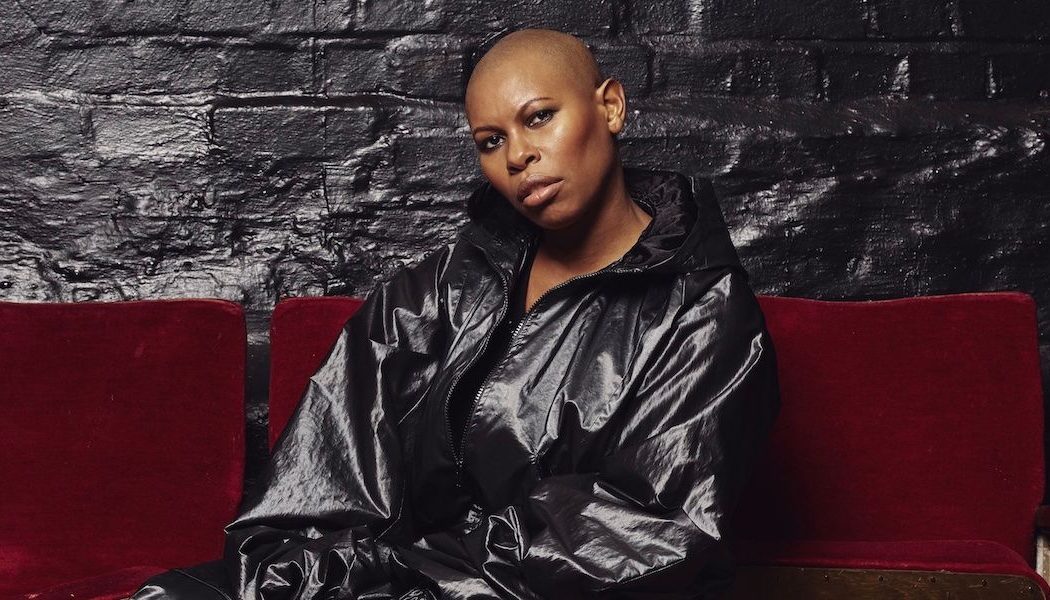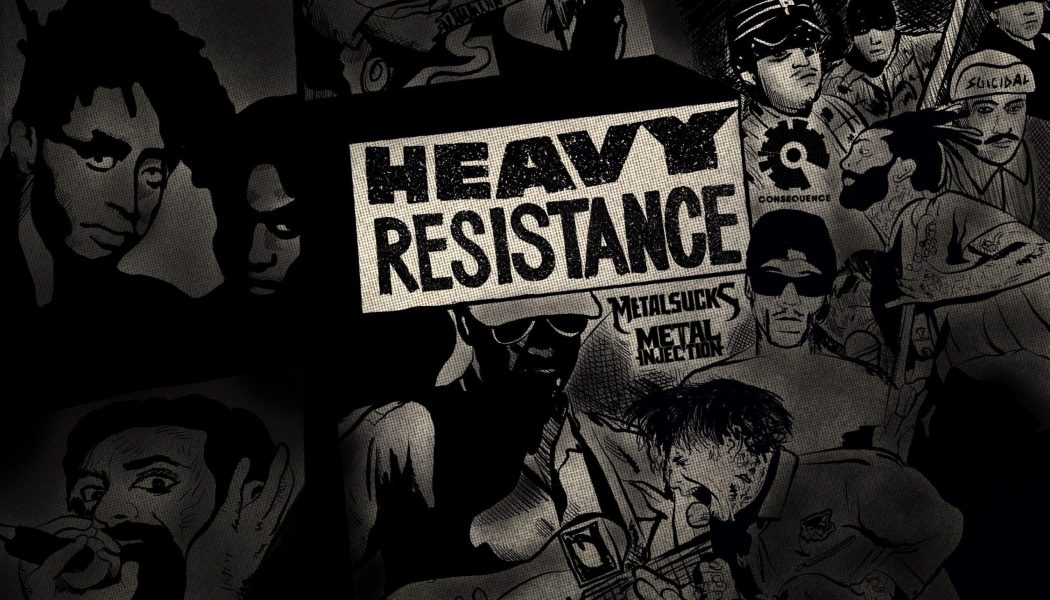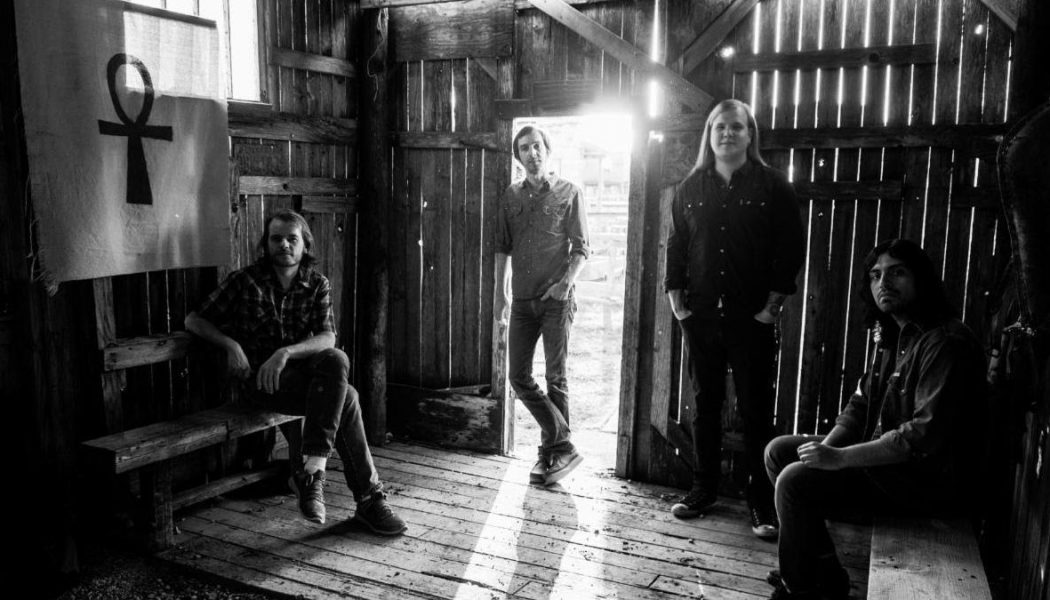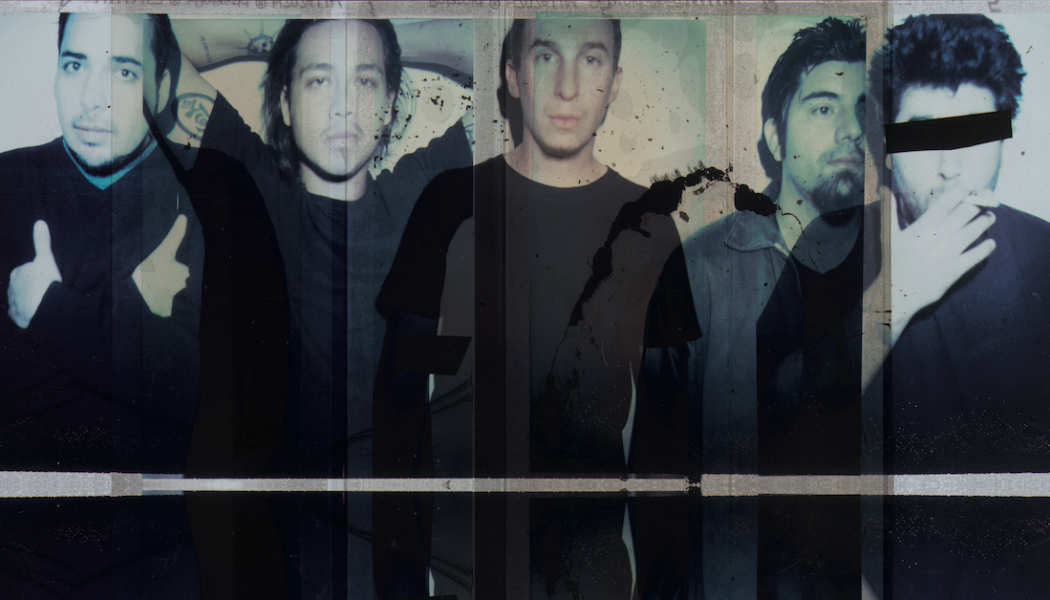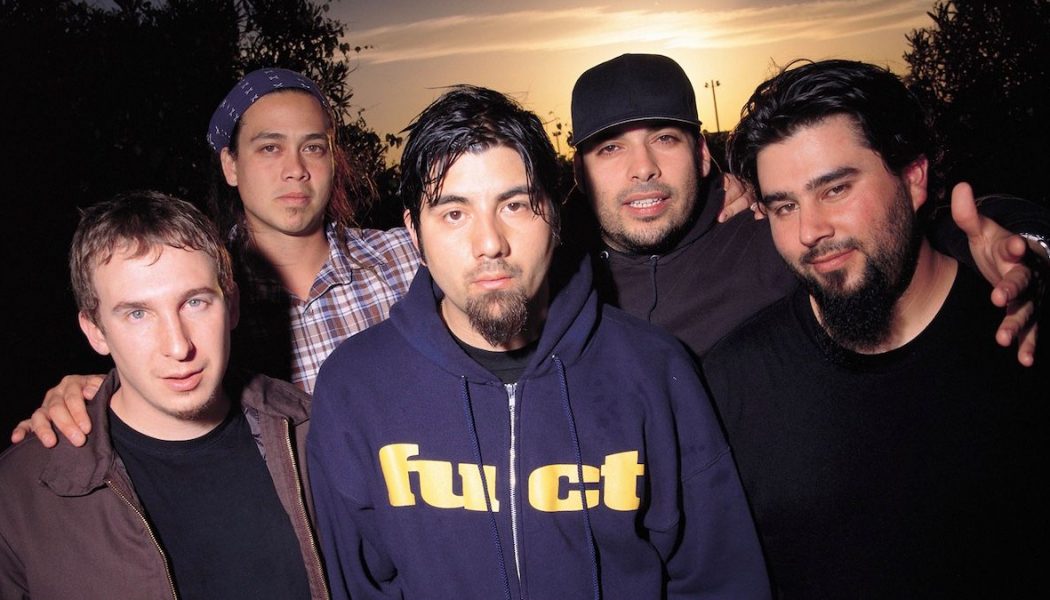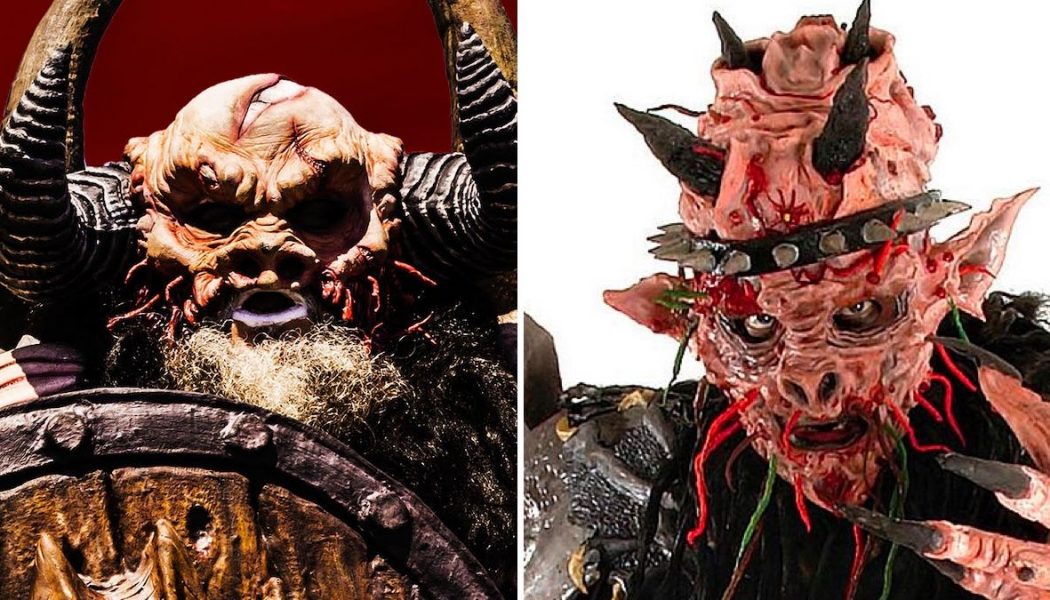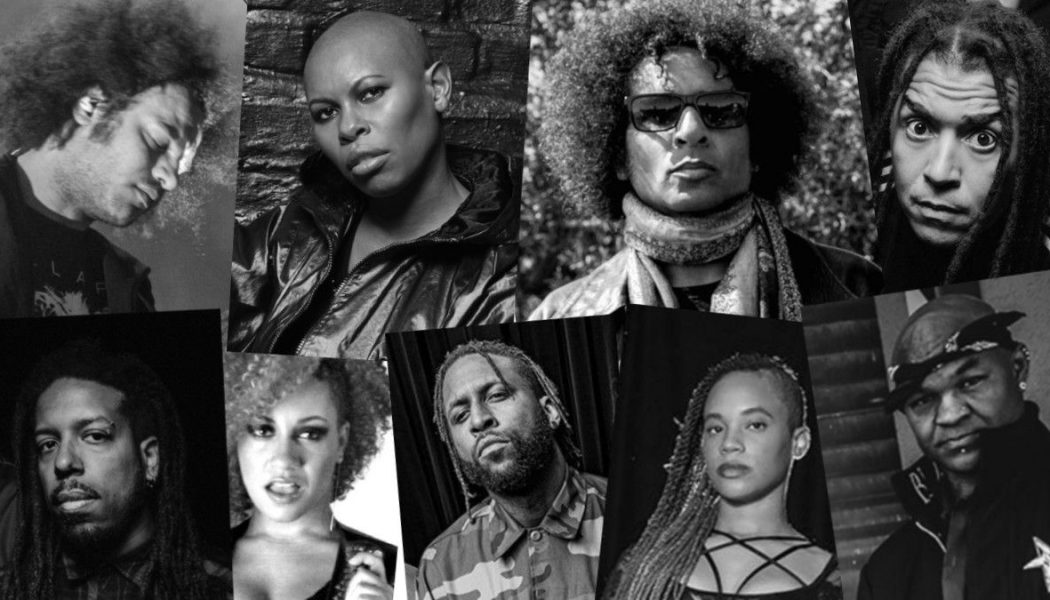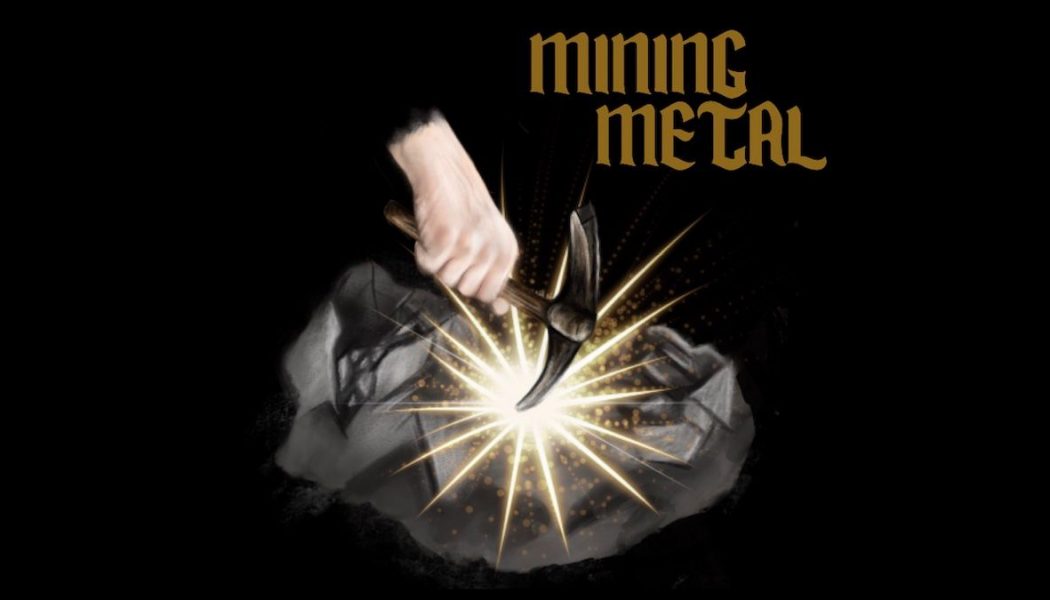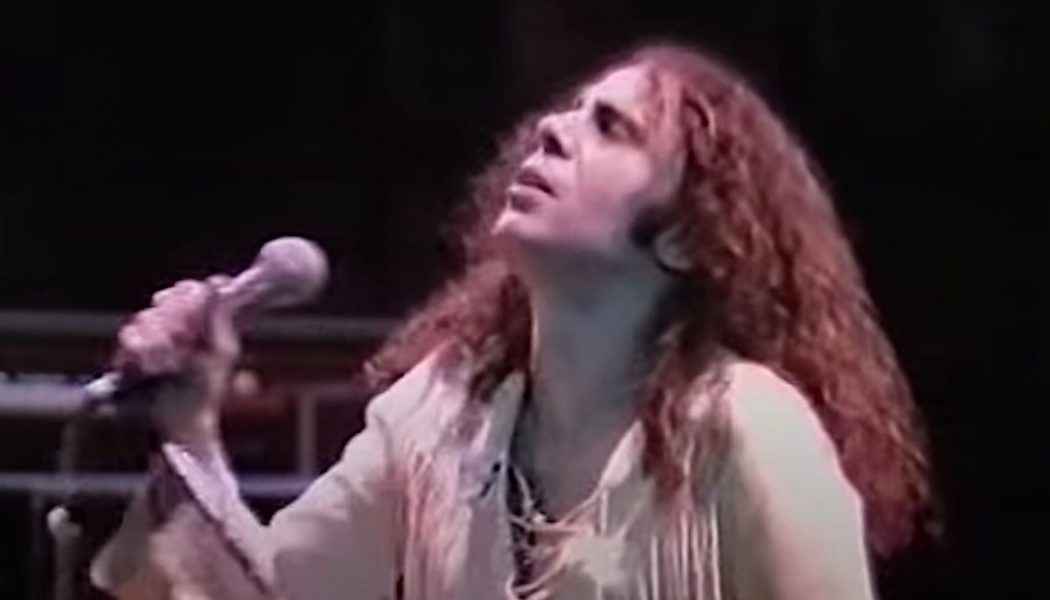Heavy Music Featured
Heavy Culture: Rock Musicians on What It Means to Be Black in America in 2020
Clockwise from Upper Left: Vincent Price, WIlliam DuVall, Cammie Gilbert, AJ Channer, Skin, Rasheed Thomas Heavy Culture is a monthly column from journalist Liz Ramanand, focusing on artists of different cultural backgrounds in heavy music as they offer their perspectives on race, society, and more as it intersects with and affects their music. The latest installment of this column features multiple rock and metal musicians recounting their early experiences of racism. The death of George Floyd while in police custody earlier this year has had a profound impact on the nation and the world. In recent months, people from all walks of life have joined together to protest injustice that Black Americans have been facing for ages. In last month’s installment of “Heavy Culture”, several musicians...
Heavy Resistance: A Playlist of Hard-Rocking Protest Songs
Over the past several weeks, we’ve seen a sea change across the nation and throughout the world. Millions of people have taken to the streets to protest against systemic racism, and the impact has been powerful. In heavy music, protest songs have provided strong condemnations of racism, oppression, war, authoritarianism, and more. Protest songs in heavy metal date back to the genre’s godfathers, Black Sabbath, who released the anti-war track “War Pigs” in 1970. Throughout the years, heavy music has produced hundreds of memorable protest anthems, with punk rock acts like The Clash and Sex Pistols leading the charge in the late ’70s, and hardcore bands like Bad Brains and Black Flag bringing the rebellion in the ’80s. In the ’90s, Rage Against the Machine took protest music to the masse...
The Sword’s J.D. Cronise Talks New Compilations, Bootlegging Rare Clutch Tracks, and His Band’s Future
Modern stoner rock owes a major debt to The Sword. Formed in 2003 in Austin, the band’s propensity for Black Sabbath-influenced doom and desert grooves predated the subculture that suddenly emerged from the stoner rock scene in the 2010s. Suddenly, remote fans of bands like Sleep and Electric Wizard were connected by the familiar churning sounds of these bands. The Sword played a vital role in this movement, with their 2006 debut album, Age of Winters, and its lead single, the now legendary “Freya”, cementing their place in doom metal lore. It was a time of resurgence for classic rock, a new era of teenagers were discovering Led Zeppelin and Sabbath, and “Freya” garnered The Sword a cult audience of eager rock fans. Their music even reached Lars Ulrich of Metallica, who would eventually ta...
20 Years Ago, Deftones Unleash Their Magnum Opus White Pony
Though it wasn’t so apparent on their 1995 debut album Adrenaline, Deftones screeched onto the scene with an instinct towards perpetual expansion that was practically encoded in the band’s creative DNA. At first, the Deftones brand was basically synonymous with the nu metal movement the Sacramento, California, outfit seemed to fit so well. By 1997’s sophomore effort Around the Fur, it was clear that Deftones were straining against the stylistic confines they’d initially seemed comfortable working within. The hip-hop, groove metal, and thrashy influences were still there, but the music was now undergirded by an emphasis on dynamics, mood, and atmosphere. But when the band released its third album, White Pony, six months into the new millennium (June 20th, 2000), Deftones effectively rendere...
20 Reasons We Still Love Deftones’ White Pony
Gimme a Reason takes classic albums celebrating major anniversaries and breaks down song by song the reasons we still love them so many years later. This week, we celebrate 20 years of Deftones’ White Pony. In 2000, nu metal ruled the airwaves. It’s then-novel mixture of alternative rock choruses, heavy metal riffs tuned lower than ever before, and hip-hop verses and rhythms had been on a half-decade growth streak. It’s juggernaut acts, like Korn and Limp Bizkit, were ubiquitous. One of the genre’s most forward-thinking devotees, a cadre of Sacramento upstarts known as Deftones seemed hot on their tails, thanks to the success of the singles “My Own Summer (Shove It)” and “Be Quiet and Drive (Far Away)” from their 1997 album Around the Fur. However, rather than be keep following the p...
GWAR’s Blothar: Oderus Urungus Wouldn’t Have Wanted His Statue Next to a “Row of Losers”
Over the past week or so, a petition to replace a statue of Confederate General Robert E. Lee in Richmond, Virginia, with one of late GWAR frontman Oderus Urungus has garnered more than 55,000 signatures. While it would be cool for scumdogs everywhere to see their fallen leader honored, current GWAR singer Blothar the Berserker tells us that Oderus wouldn’t want a statue of himself alongside a “row of losers.” As controversial statues continue to get toppled amid worldwide protests, the petition calls Robert E. Lee a “failed war general that supported a racist cause” while touting Oderus as a “great local leader.” While Oderus may have come from the planet Scumdogia and settled in Antarctica, his alter ego, Dave Brockie (who passed away in 2014), called Richmond his home. Blothar beamed in...
Heavy Culture: Musicians Recount Early Experiences of Racism
Heavy Culture is a monthly column from journalist Liz Ramanand, focusing on artists of different cultural backgrounds in heavy music as they offer their perspectives on race, society, and more as it intersects with and affects their music. The latest installment of this column features multiple rock and metal musicians recounting their early experiences of racism. Racism is real. Colorism is real. Implicit biases are real. Injustice is real. It is rooted in ignorance. As a Caribbean woman, the first time I experienced racism was a vivid memory in the first grade. A white, female classmate, the same age as me — about 6 or 7 years old — told me I was dirty, ugly, and that I did not deserve the new stationery my mom bought for me. Even as a child, I felt that this classmate had disdain for me...
Mining Metal: Ara, Cryptic Shift, Goden, Lascar, Mekong Delta, Oozing Wound, Patrons of the Rotting Gate, Xibalba
“Mining Metal” is a monthly column from Heavy Consequence writers Joseph Schafer and Langdon Hickman. The focus is on noteworthy new music emerging from the non-mainstream metal scene, highlighting releases from small and independent labels — or even releases from unsigned acts. This month’s mining metal veers away from the traditional and toward the esoteric. Due to the ongoing COVID-19 pandemic, many labels have postponed hotly awaited releases for months or indefinitely. Because of this, bands not beholden to (or resistant to) commercial scheduling take the lead — Chilean black metal and Irish progressive deathcore, both the passion projects of independent musicians, lead the pack here. Musicians with long histories on the fringes take center stage, such as German neoclassical thrashers...
Beyond the Boys’ Club: Maria Brink of In This Moment
Beyond the Boys’ Club is a monthly column from journalist and radio host Anne Erickson, focusing on women in the heavy music genres, as they offer their perspectives on the music industry and discuss their personal experiences. This month’s piece features an interview with Maria Brink of In This Moment. In This Moment reinvent themselves from album to album, so it’s no surprise that the band’s latest record, Mother, has a fresh style and feel. Their previous LP, 2017’s Ritual, was a concept album of sorts, centering around the Salem Witch Trials. Mother is a deeply personal and serious album lyrically, with solid rock riffing, experimental electronics, and singer Maria Brink’s soulful vocals. Mother was released in the midst of the COVID-19 pandemic, with the band choosing not to postpone ...
Remembering Ronnie James Dio 10 Years After His Passing: Interview with Wendy Dio
It’s been 10 years since the world lost one of the greatest voices of heavy metal and hard rock, the iconic Ronnie James Dio. The singer had a legendary career, ranging from doo-wop bands in the late ’50s to a reunion with his onetime Black Sabbath bandmates as Heaven & Hell in the 21st century. Born Ronald James Padavona on July 10, 1942 in Portsmouth, New Hampshire, Dio was raised in Cortland, New York, and became a trumpet player at an early age. Eventually, his vocal talents led him to singing in a variety of doo-wop and rock ‘n’ roll bands (including Ronnie Dio and the Redcaps). By the time he became the singer in Elf (earlier going by the name the Electric Elves), he began to find the style of music that best suited his voice – hard rock, and later, heavy metal. Elf opened shows ...
- 1
- 2
